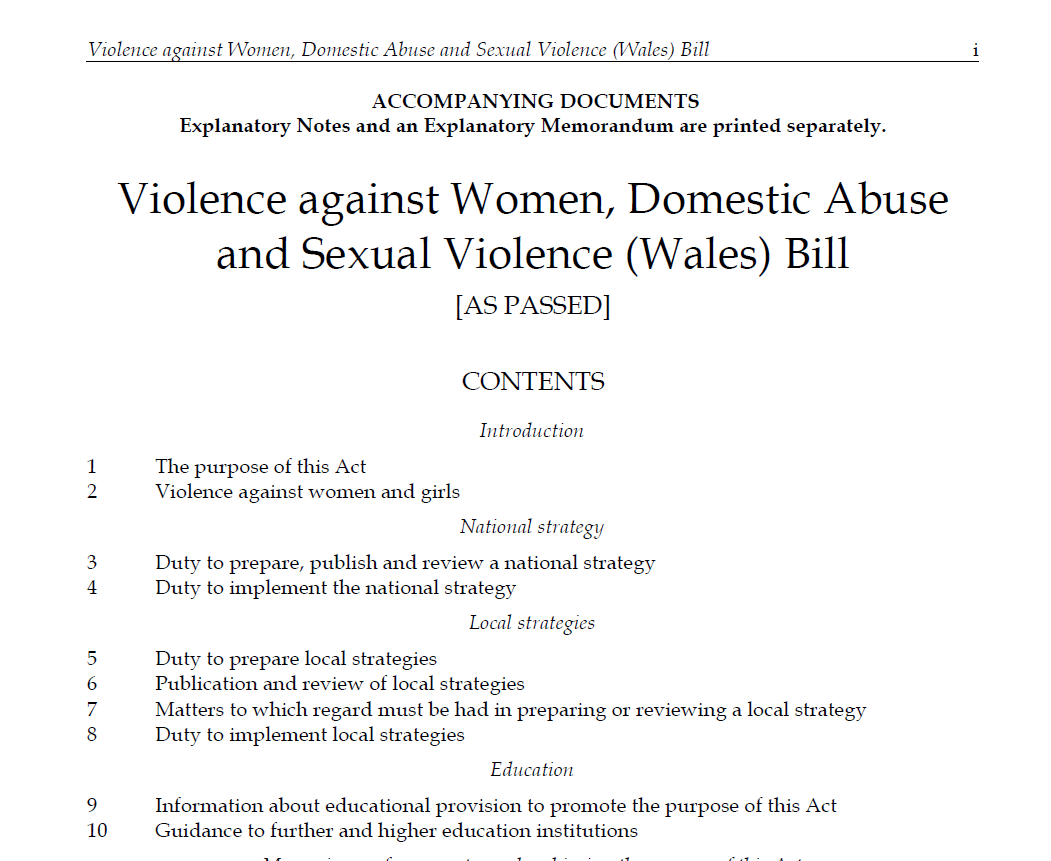Article by Hannah Johnson, National Assembly for Wales Research Service
It’s been 12 months since the Welsh Government first introduced a Bill to reduce gender-based violence in Wales. On Tuesday 30 June, the Minister for Public Services, Leighton Andrews AM, will make a statement in plenary on its progress. So what has happened in the last year?  In March 2015, the Violence against Women, Domestic Abuse and Sexual Violence (Wales) Act 2015 was passed, after a difficult passage through the Assembly, which included a name change and various concessions on education. This post details the initial problems the Act faced, and this post outlines how the education provisions in the Act evolved. The main parts of the Act are:
In March 2015, the Violence against Women, Domestic Abuse and Sexual Violence (Wales) Act 2015 was passed, after a difficult passage through the Assembly, which included a name change and various concessions on education. This post details the initial problems the Act faced, and this post outlines how the education provisions in the Act evolved. The main parts of the Act are:
- the duty to prepare and report on national strategies;
- the duty to prepare and report on local strategies;
- a duty on local authorities to report on how they are addressing gender-based violence, domestic abuse and sexual violence within their education institutions, including through sex education;
- the power for Ministers to issue statutory guidance and the duty to follow such guidance; and
- appointment of a Violence Against Women Adviser.
Recent news
- The Welsh Government post of Violence Against Women Adviser (created by the Act) was advertised, but as a part-time role;
- Welsh Women’s Aid consulted on a Good Practice guide to delivering Whole Education Approaches to Preventing Violence Against Women, Domestic Abuse and Sexual Violence in April;
- Recent news reports suggest that police training in Gwent is not up to scratch, with many relying on e-learning;
- Academic research shows violent crime may be 60 per cent higher than previously thought because victims can only record a maximum of five incidents;
- Last week, the Crown Prosecution Service revealed that 5,124 people were convicted for violence against women and girls in Wales in 2014-15;
- A UN report on violence against women examining how well the UK responds to violence against women and girls was published in June by UN’s Special Rapporteur Associate Professor Rashida Manjoo. In the report Rashida Manjoo recommends that the UK Government:
- urgently evaluates the way life-saving women’s support services (including refuges, helplines and BME women’s services) are funded and commits to ensuring that these are made adequate and sustainable;
- make sex and relationships education compulsory in schools as the fundamental way of ensuring the UK tries to prevent abuse;
- examine the way legal aid changes are impacting women facing abuse;
- review the assessment of women asylum seekers’ claims to ensure gender sensitivity; and permit an independent examination of the treatment of women in the Yarls Wood immigration detention centre (she was denied entry to the centre on her visit to the UK).
There is still lots of work to do to implement the Act, from the design of effective healthy relationships education to the training of frontline professionals, and the development of national and local strategies.






